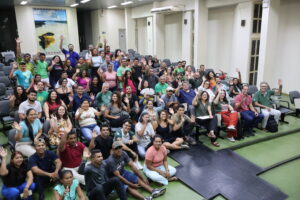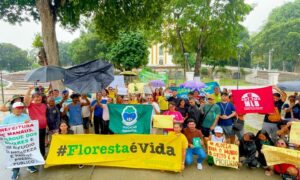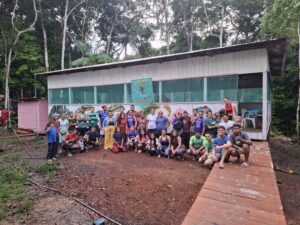The event is one of the main instances of collective deliberation in Mid-Juruá
By Maria Phamela Barbosa, Milena Azevedo and Almira Silva
Translated by Bruna Favaro
The 34th meeting of the Mid-Juruá Territory Forum (FTMJ) took place on the 16th and 17th of November, at the headquarters of the Association of Rural Producers of Carauari (ASPROC) in Carauari, AM. The event brought together representatives of all local organizations that make up the Mid-Juruá Territory Forum, as well as institutional partners operating in the region, being one of the main spaces for communication, information sharing and collective deliberation between community-based associations and organizations that operate in the Mid-Juruá territory. During the form, results, proposals and governance guidelines for the territory are presented. The grassroots associations presented their ongoing projects – which were debated – and the main demands were raised by the collective, defining the necessary steps.
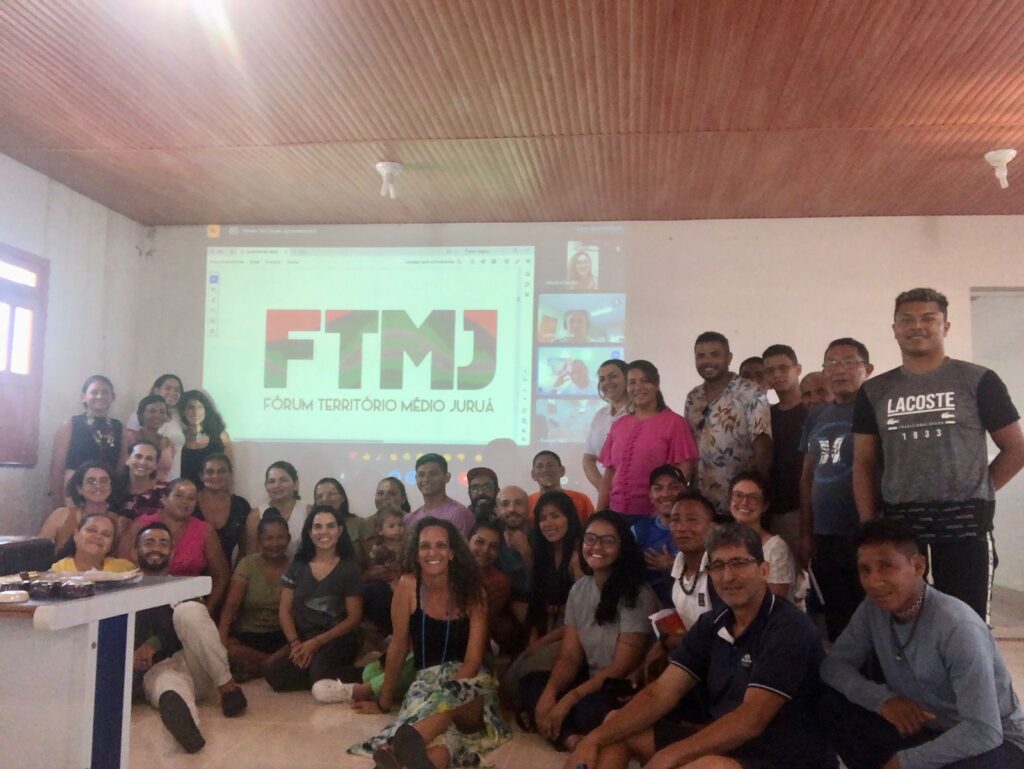
On the first day, the meeting began with a brief presentation of everyone present, followed by sharing the agenda, reports and, finally, a moment for each organization to share their planned actions, projects and schedules.
The event was attended by some grassroots associations that make up the FTMJ: of Association of Rural Producers of Carauari (ASPROC), Mixed Cooperative of Sustainable Development and Solidarity Economy of the Mid-Juruá (CODAEMJ), Association of Agroextractivist Residents of the Sustainable Development Reserve of Uacari (AMARU), Association of Deni People of Xeruã River (ASPODEX), Association of Agroextractivist Residents of the Lower Mid-Juruá (AMAB), Environmental, Extractivist, Fishermen and Rural Producers Association of Itamarati (AAEPPRI), Association of Agroextractivist Producers of the Nova Esperança Community (AANE), Association of Agroextractivist Women of Mid-Juruá (ASMAMJ), Extractivists Residents of São Raimundo Community (AMECSARA), Benefit Sharing Fund (FRBMJ) and the leadership of the Matatiben village. Among the partner institutions were Brazilian Education Institute (IEB), Natura Cosméticos (a brazilian cosmetic company), ICMBio, National Council of Extractivist Populations (CNS), Memorial Chico Mendes, Sitawi, Sustainable Amazon Foundation (FAS), Operation Native Amazon (OPAN), Fundo Médio Juruá, Instituto Juruá, State University of Amazonas (UEA), Instituto Fronteiras, Conexsus and Development and Sustainability Brazilian Institute (IABS).
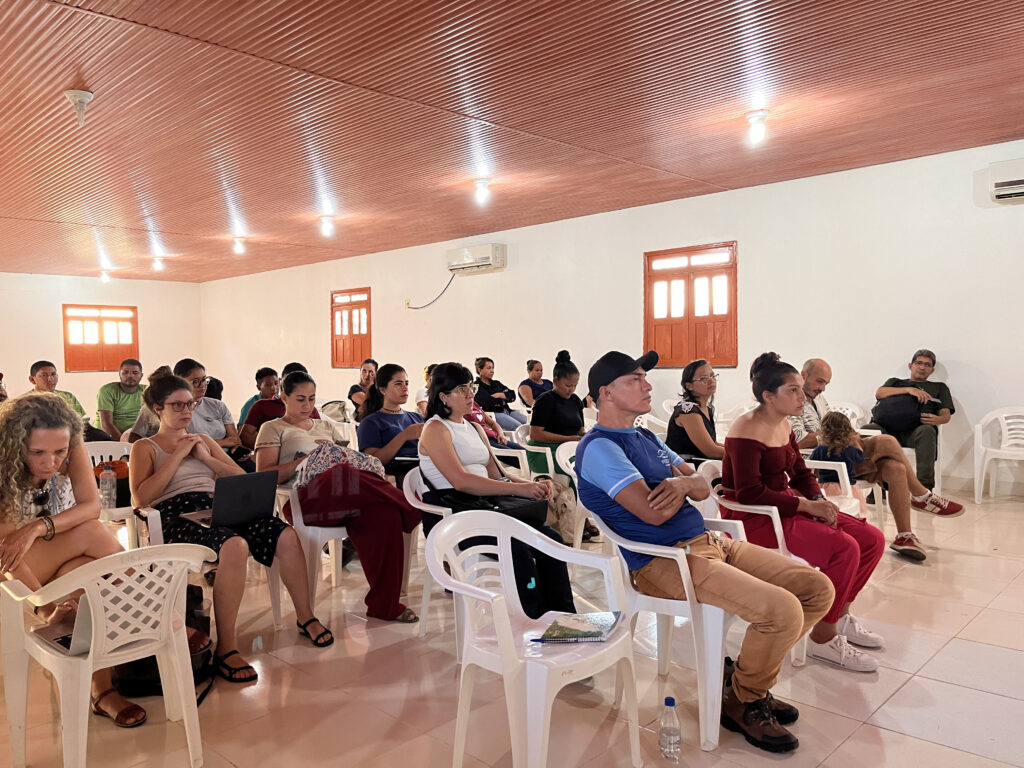
After the break between shifts, the second round was opened by Sustainable Amazon Foundation (FAS), bringing the proposal of “Forest People Connection” and the Core Education Project (Projeto de Educação dos Núcleos). Next, Professor Lucinete Gadelha (UEA) spoke, bringing updates on the Countryside Pedagogy course. Natura also presented its actions in the territory. Dione Torquato and Francisco Flávio Ferreira do Carmo (from CNS) explained briefly about the carbon potential and the notice from the State Government on Conservation Units.
Instituto Juruá, represented by Phamela Barbosa and Janaína Costa, also updated the partners about its actions in partnership with the grassroots organizations and about the oilseed production chain project. Closing the first day, Ronnayana Silva (Sitawi) presented a research project – about the arapaima management and its social and bio economic impacts – that is being implemented in the territory.
During the two-day forum, Instituto Juruá circulated a questionnaire among grassroots organizations partners to evaluate our actions and diagnose local demands for the next year, in order to plan and improve the impact of partnerships.

